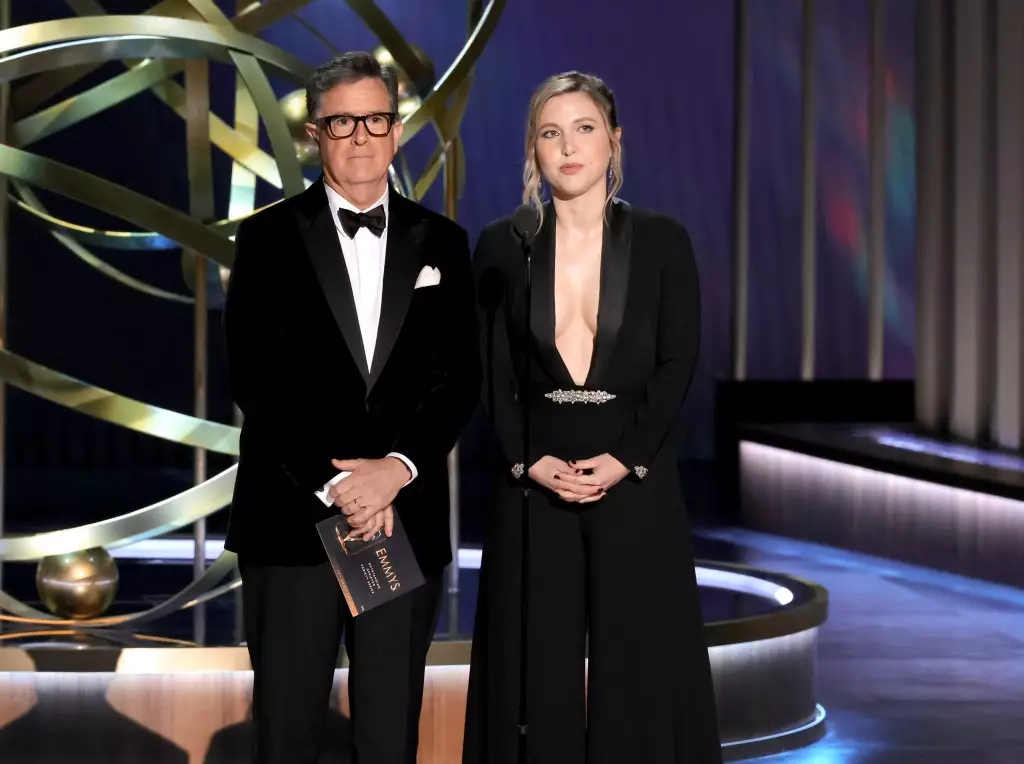In a noteworthy development that sent ripples through the late-night television landscape, CBS has confirmed the cancellation of *After Midnight*, a show spearheaded by the incredibly talented Taylor Tomlinson. As someone deeply invested in the evolution of comedy, I can’t help but reflect on the implications of this decision, both for Tomlinson’s career and the broader genre of late-night entertainment. The show aired for two seasons, with Tomlinson at the helm, offering a fresh perspective that distinguished it from traditional formats typically seen during the midnight slot.
With Taylor Tomlinson’s departure to refocus on her stand-up career, we must acknowledge the profound respect and admiration that Stephen Colbert, the show’s executive producer and late-night titan, expressed over her choice. Colbert is known for his nuanced understanding of the comedy landscape, and his endorsement of Tomlinson’s decision reveals the rare intersection of personal growth and professional aspirations.
Tomlinson’s Impact on Late Night Comedy
Taylor Tomlinson is more than just another comedian; she symbolizes the new wave of talent redefining how we perceive late-night comedy. In her brief stint on *After Midnight*, she successfully brought to the forefront a style that blended humor with relatability, and her connection to the audience was palpable. As she makes this transition, it compels us to consider: what do we stand to lose when innovative voices like hers step away from platforms that could have benefited from their unique vision?
The decision to cancel *After Midnight*, despite its renewal for a third season prior to Tomlinson’s announcement, indicates CBS’s hesitance to continue investing in a format that, while refreshing, may not have aligned with the traditional expectations of late-night viewership. One cannot ignore the tension between the network’s age-old formula and the evolving tastes of the contemporary audience.
Championing Creative Risks in Television
Colbert’s heartfelt gratitude towards CBS and the production team behind *After Midnight* highlights a crucial element often overlooked in the cutthroat world of television: collaboration and trust. The myriad of creative minds who worked on the show—from executive producers to writers—strived to innovate within a genre that desperately needs rejuvenation. However, the retention of a conventional outlook from network executives like CBS CEO George Cheeks may stifle this kind of creativity. Colbert’s tribute serves as a reminder that the industry thrives on taking risks; a value that, unfortunately, is frequently sacrificed for the sake of sponsorship and viewership metrics.
What the cancellation of *After Midnight* ultimately underscores is that even when shows resonate strongly with a younger demographic, the fragile ecosystem of network television is rarely conducive to radical change. For every successful reboot or original concept that garners acclaim, countless others fizzle out due to a lack of patience or foresight from their networks.
As Tomlinson embarks on her next adventure in stand-up, we, as audiences, are left to ponder the landscape of late-night television. Will future hosts embrace the challenge of reinvention, or will we continue to cling to familiar formulas that fail to engage the next generation of comedy lovers? Tomlinson’s departure is not merely a loss for *After Midnight*, but perhaps an urgent call to the industry to reconsider how it supports the bold voices of tomorrow.


Leave a Reply